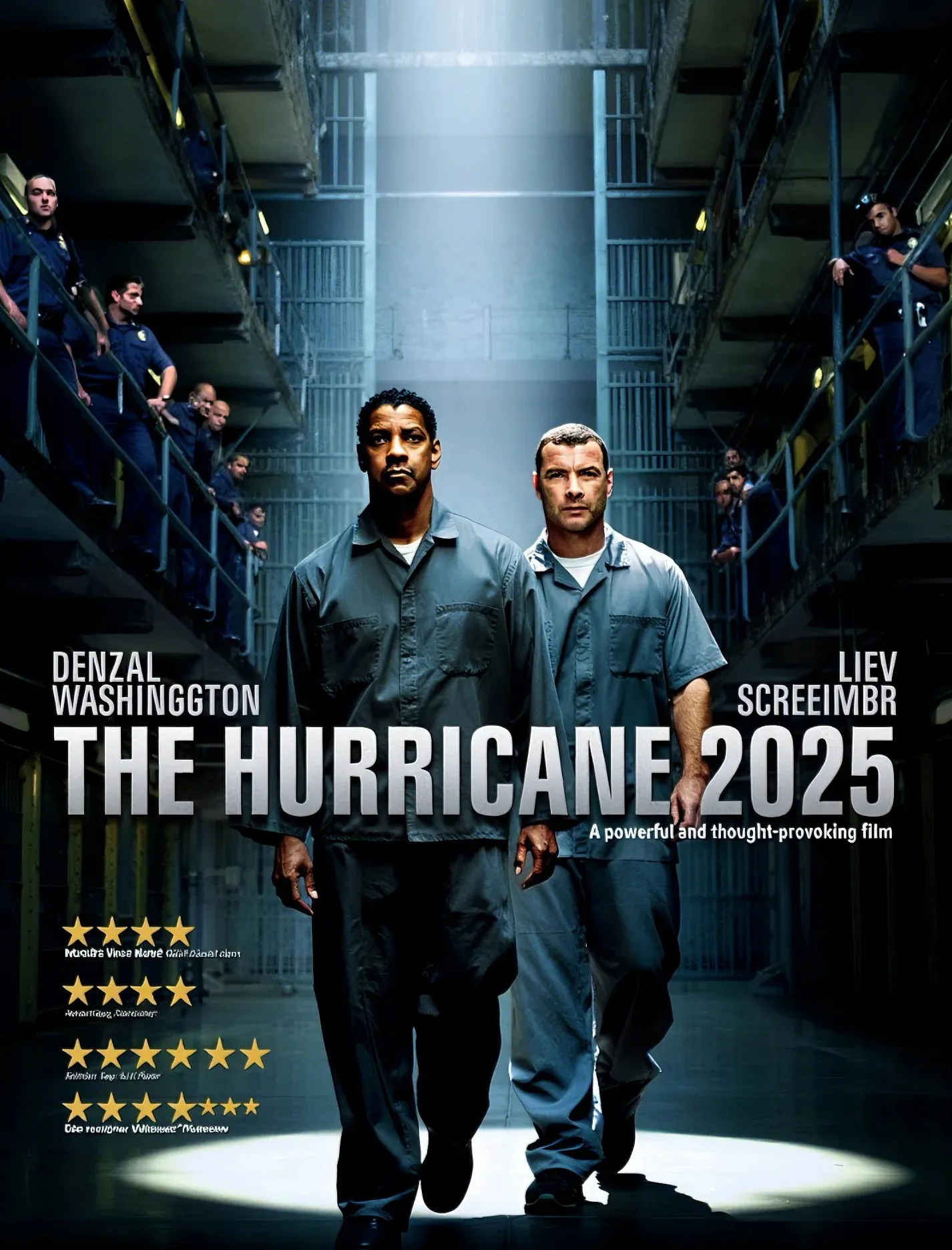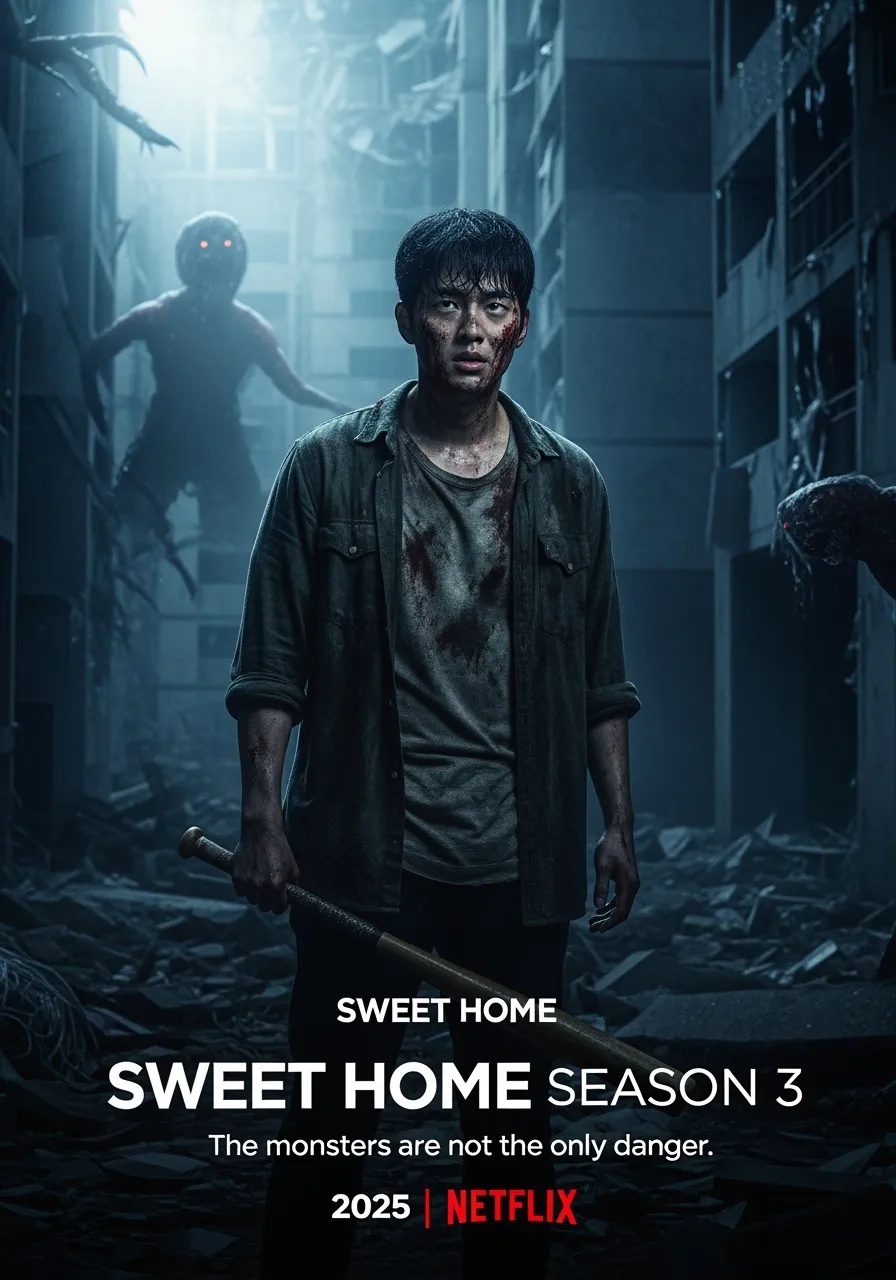Twenty years after the system spat him out and the world declared him free, Rubin "Hurricane" Carter walks back into prison. But this time, he’s not wearing a number — he’s carrying a name, a legacy, and the unrelenting weight of experience. Hurricane 2025 is not a typical sequel. It’s a meditative, fiery, and emotionally explosive return to the world of institutional injustice, where freedom isn’t just a place outside bars, but a state of mind wrestled from within.
ACT I: THE RETURN — AND THE GHOSTS THAT FOLLOW
After years of silence, Rubin is coaxed back into the place that tried to erase him. As part of a controversial rehabilitation initiative, he agrees to serve as a mentor to violent offenders in one of the most volatile correctional facilities in the country. But he doesn’t walk in as a savior. He walks in as a man still bleeding beneath the surface — a former champion whose real fight has never been in the ring.

Enter Ethan Cross (Liev Schreiber), a disgraced former cop doing time after a high-profile scandal ripped through the justice system. Hardened, bitter, and quick to anger, Cross sees Rubin not as a mentor, but as an enemy — a man who, in his eyes, symbolizes everything wrong with second chances. Their tension is immediate, suffocating, and electrifying.
The early scenes don’t rush to resolution. Instead, director Antoine Fuqua gives space to silence — to the sounds of prison routines, to stolen glances of vulnerability, to the internal friction of two men trapped by different kinds of guilt.
ACT II: THE SYSTEM WITHIN THE SYSTEM
What Hurricane 2025 understands better than most prison dramas is this: the true antagonist isn’t just a guard or a warden — it’s the machinery. The unrelenting, self-preserving bureaucracy of punishment, where corruption doesn't scream — it whispers in policy.
As unrest brews among the inmates, both Rubin and Cross begin to uncover something far more sinister than violence or vengeance: a chain of coverups involving wrongful convictions, institutional abuse, and an internal code of silence enforced not by force, but by survival. Each man must confront what he’s willing to risk to expose it — and what he’s afraid will happen if he does.
In one unforgettable moment, Rubin — watching an inmate break down after solitary confinement — turns to Cross and says:
“Prison doesn’t teach you how to live better. It just teaches you how to forget you ever could.”
It’s a line that lands not just in Cross’s gut — but in the audience’s.

ACT III: THE VERDICT THAT NEVER CAME
The final act brings Carter and Cross face to face with the same question — but from different ends of the spectrum:
Is justice still worth believing in when you've seen what it really costs?
What begins as mentorship evolves into something deeper: a reluctant alliance. Not of ideology, but of necessity. These are not heroes. They are not flawless. They are men broken in public, trying to reassemble themselves in private. The climax doesn’t deliver a neat resolution. Instead, it delivers something more dangerous: choice.
Do they expose the system and risk everything, or preserve the illusion of progress for the sake of survival? The answer — as in life — is painfully, powerfully complicated.
PERFORMANCES: FIRE AND STILLNESS
Denzel Washington delivers one of his most disciplined, introspective performances in years — playing Carter not as a symbol, but as a man weathered by years of unspoken rage and learned restraint. His eyes carry more weight than monologues. His silences feel louder than any outburst.
Meanwhile, Liev Schreiber is astonishing. His portrayal of Ethan Cross is a slow-burn — a man you loathe at first, then slowly understand, then can’t look away from. The chemistry between the two men is magnetic, shaped by distrust, mutual recognition, and something that eventually resembles reluctant respect.

VERDICT: A SEQUEL THAT STANDS ITS GROUND
Hurricane 2025 dares to go deeper than its predecessor. Where the original raged at injustice, this film quietly dismantles it from the inside — not through rage, but through introspection, confrontation, and reckoning.
It’s a story about systems. About scars. About two men walking parallel lines through different hells, only to find that healing — if it ever comes — must begin in the same place the pain started.
He fought the system once. Now, he fights for what's left of his soul.
⭐ Rating: 9/10
A slow-burning, character-driven powerhouse that redefines what a prison drama can be: not about breaking out, but about breaking open.

-1747716802-q80.webp)
-1748427036-q80.webp)
-1740282288-q80.webp)
